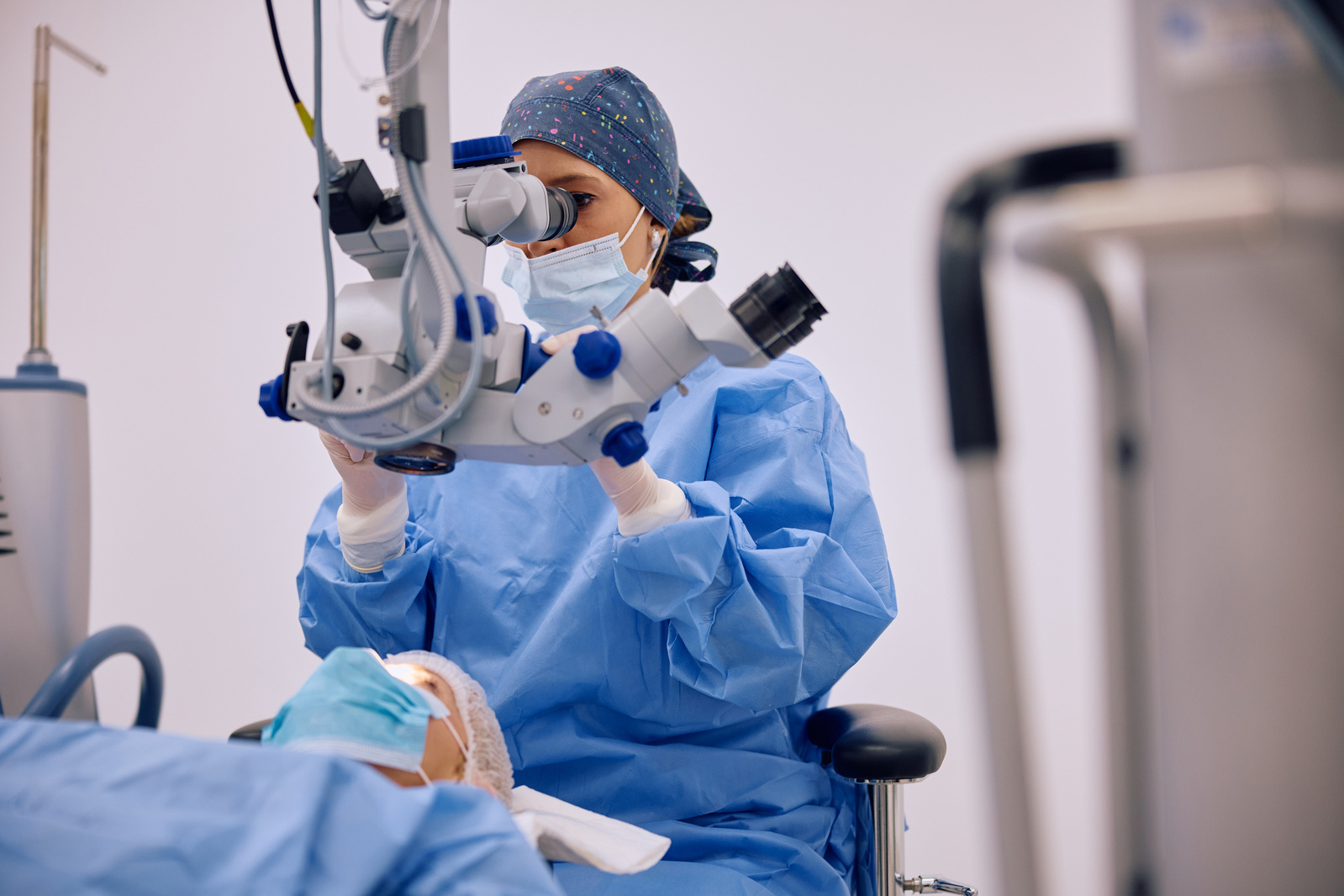Advancements in Laser Eye Surgery Techniques
Introduction
Laser eye surgery has undergone significant advancements in recent years, revolutionizing the way vision problems are treated. These techniques utilize laser technology to reshape the cornea, correcting refractive errors such as nearsightedness (myopia), farsightedness (hyperopia), and astigmatism. This article explores the latest advancements in laser eye surgery techniques, offering insights into their procedures, benefits, risks, and alternatives.
Procedure Overview
LASIK (Laser-Assisted In Situ Keratomileusis):
- LASIK is one of the most common and widely performed laser eye surgeries. It involves creating a thin flap in the cornea using a microkeratome or a femtosecond laser. The flap is then lifted, and a laser is used to reshape the underlying corneal tissue to correct the refractive error. Finally, the flap is repositioned, allowing for rapid healing.
- Advanced LASIK techniques, such as wavefront-guided or wavefront-optimized LASIK, utilize precise mapping of the cornea’s surface to customize the treatment for each patient, enhancing visual outcomes and reducing side effects.
PRK (Photorefractive Keratectomy):
- PRK is an alternative to LASIK, particularly suitable for individuals with thin or irregular corneas. In PRK, the outer layer of the cornea (epithelium) is gently removed, and the underlying corneal tissue is reshaped using a laser. The epithelium regenerates naturally over a few days following the procedure.
- Advanced surface ablation techniques, such as TransPRK (Transepithelial Photorefractive Keratectomy), involve laser ablation of both the epithelium and corneal stroma in a single step, offering faster visual recovery and reduced discomfort compared to traditional PRK.
Benefits
- Improved Vision: Advanced laser eye surgery techniques can correct refractive errors with remarkable precision, leading to significantly improved vision quality.
- Reduced Dependence on Glasses or Contact Lenses: Many patients experience reduced reliance on corrective eyewear or eliminate the need altogether following successful laser eye surgery.
- Quick Recovery: With advancements such as bladeless LASIK and surface ablation techniques, recovery times have shortened, allowing patients to resume normal activities within a few days.
Risks and Considerations
- Dry Eyes: Temporary dryness of the eyes is a common side effect after laser eye surgery, but it typically resolves within a few weeks.
- Undercorrection or Overcorrection: While advancements in technology have minimized these risks, some patients may still experience undercorrection or overcorrection of their vision, necessitating enhancement procedures.
- Complications: Although rare, complications such as infection, glare, halos, or night vision disturbances may occur, highlighting the importance of thorough preoperative evaluation and post-operative care.
Recovery and Follow-up
Following laser eye surgery, patients are typically advised to rest and avoid strenuous activities for a few days to promote healing. Medications may be prescribed to alleviate discomfort and prevent infection. Most patients experience improved vision within a few days to weeks, although full stabilization of vision may take several months.
Regular follow-up appointments with the surgeon are essential to monitor healing progress and address any concerns or complications that may arise. Patients should adhere to post-operative care instructions diligently to optimize recovery and minimize the risk of complications.
Alternatives
For individuals who are not eligible for laser eye surgery or prefer alternative options, there are several alternatives available, including glasses, contact lenses, and implantable lenses such as phakic intraocular lenses (IOLs) or refractive lens exchange (RLE). These alternatives may be suitable for patients with specific refractive errors or medical conditions that preclude them from undergoing laser surgery.
Conclusion
Advancements in laser eye surgery techniques have transformed the landscape of vision correction, offering safe, effective, and customizable solutions for a wide range of refractive errors. While these procedures come with potential risks and considerations, the benefits of improved vision and reduced dependence on corrective eyewear are compelling. Individuals considering laser eye surgery are encouraged to consult with a qualified ophthalmologist to determine the most suitable treatment option based on their unique needs and circumstances.
World Eye Care Foundation’s eyecare.live brings you the latest information from various industry sources and experts in eye health and vision care. Please consult with your eye care provider for more general information and specific eye conditions. We do not provide any medical advice, suggestions or recommendations in any health conditions.
Commonly Asked Questions
Laser eye surgery provides permanent results for the correction of refractive errors, but changes in vision due to aging or other factors may occur over time, necessitating further treatment or enhancement procedures.
The eligibility for laser eye surgery depends on various factors, including the presence of other eye conditions. A comprehensive pre-operative evaluation will determine suitability.
Depending on the patient’s age and visual needs, they may still require reading glasses for close-up tasks due to presbyopia, a natural age-related condition.
In most cases, both eyes are treated during the same session to ensure symmetrical visual outcomes and minimize overall recovery time.
Yes, laser eye surgery techniques such as LASIK and PRK can effectively correct astigmatism in addition to nearsightedness and farsightedness.
While there’s no specific age limit, candidates should be at least 18 years old and have stable vision for at least a year before considering laser eye surgery.
While recovery times vary, many patients can return to work within a few days following laser eye surgery, but it’s advisable to avoid strenuous activities during the initial recovery period.
Most patients are advised to arrange transportation home after the procedure, and driving is usually permitted once the surgeon confirms stable vision and discontinuation of any post-operative medications.
The actual laser treatment typically lasts only a few minutes per eye, but patients should plan for a couple of hours for pre-operative preparations and post-operative monitoring.
During the procedure, patients may experience some pressure or discomfort, but it is typically painless due to the application of numbing eye drops.
news via inbox
Subscribe here to get latest updates !








